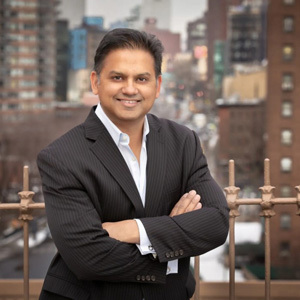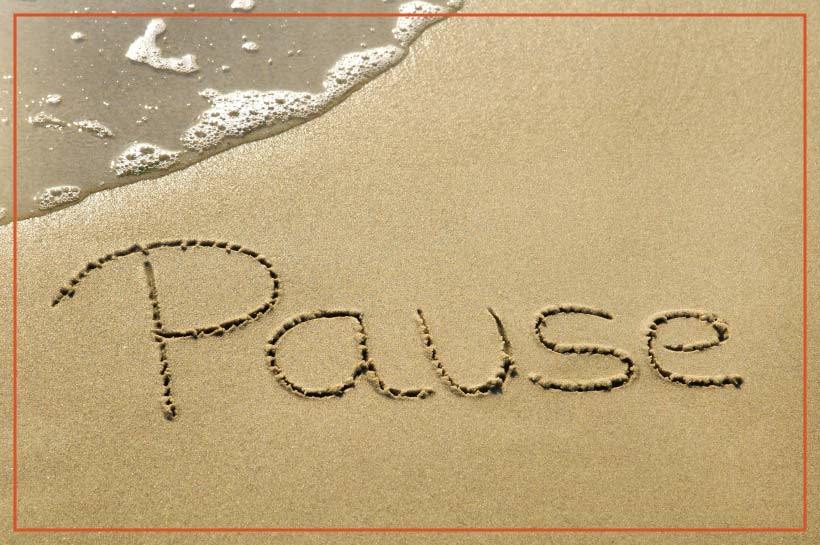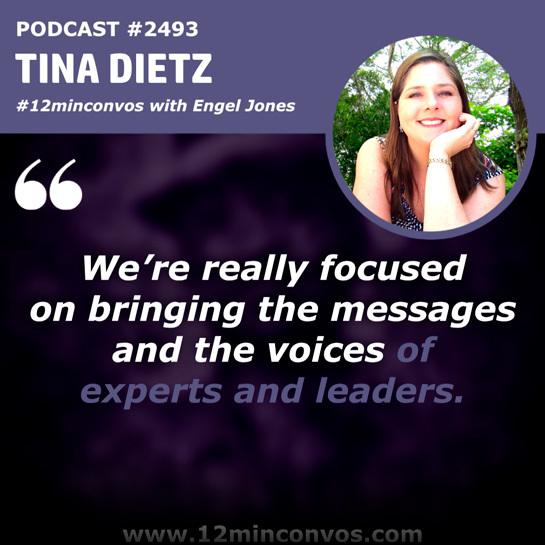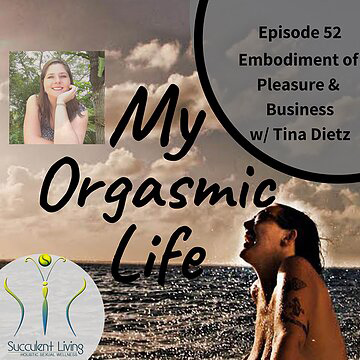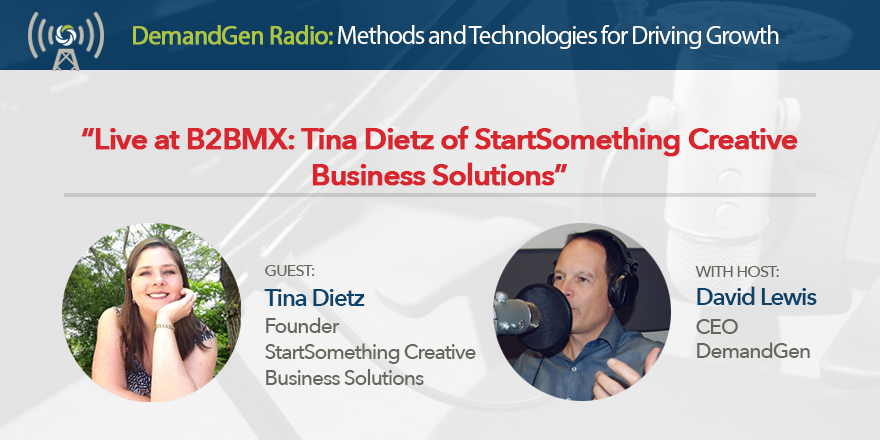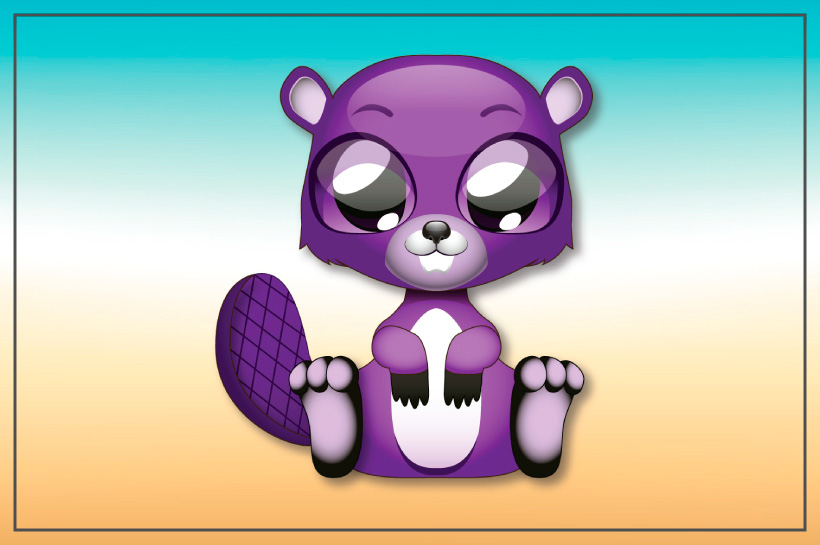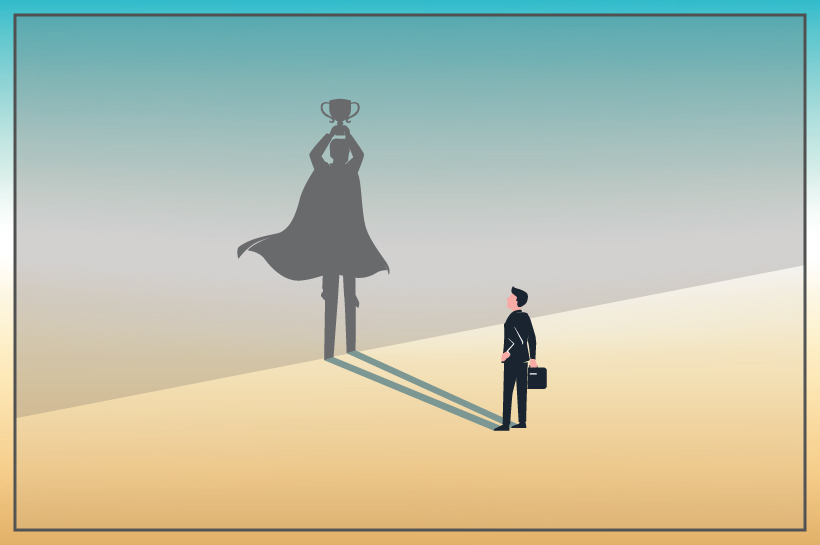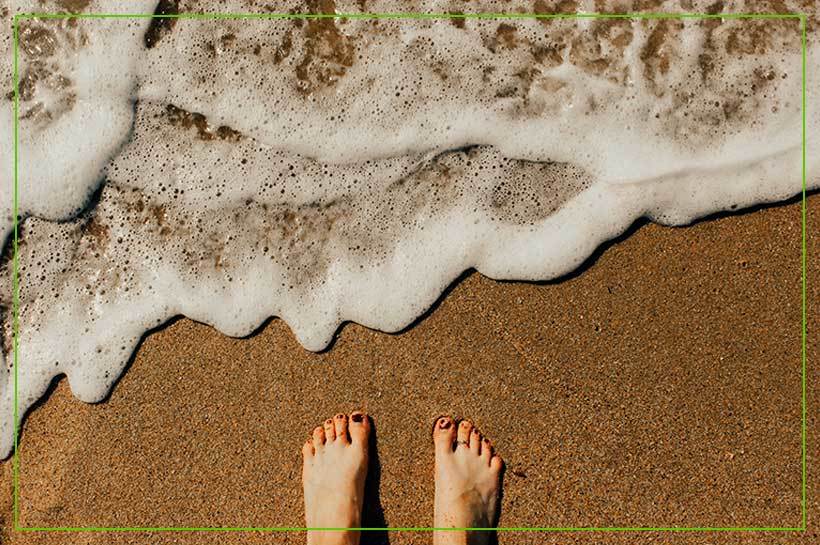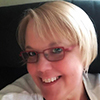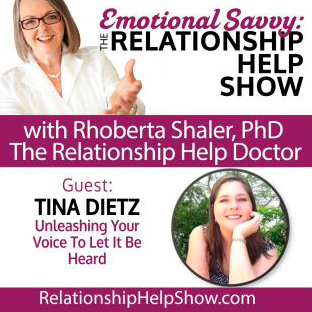Developing a Calling: Tina Dietz on the ACHiEVE Podcast with Aseem Giri [Podcast]
Tune in to 101st episode of the ACHiEVE Podcast with Aseem Giri and find out how you can start developing your calling.
(ACHiEVE Podcast with Aseem Giri, October 2, 2020)
Listen to the podcast here
On this 101st episode, we have Tina Dietz. Tina grew up mostly in western New York State, and studied in Buffalo, New York during her undergrad years. She had a childhood passion for musical theatre, and helped her parents out extensively in their family business. She went to graduate school in North Carolina, focusing on education, and returned to Western New York, where she worked with an international leadership organization called Camp Rising Sun. She also worked as a life coach and educator, focusing on adolescence. After several years, she, her husband and two children migrated to Costa Rica. She has now relocated to Florida and morphed her coaching and business development company into an audio production studio called Twin Flames Studios, where she produces audiobooks and podcasts for clients. Tina, thank you so much for being on our show.
Aseem—I really appreciate it.
It's great to have you! You've had a tremendous amount of expertise in podcasting, and in developing podcasters, and so it's really great to have your perspective on the show and to hear about your journey.
In prepping for this interview, I was listening to some interviews that you've done in the past, and I was particularly intrigued with one that talked about how you were handed a tape recorder at the age of two.
Yeah, I have that recording!
I would love to hear that story and have you shared that with the audience, please.
Well, I'm originally from the Buffalo New York area. And by way of context, my father is—and was—a very fiery Italian man. And before he turned his sights to entrepreneurialism—and I grew up inside of my parents’ business—prior to that, he worked for the Asbestos Workers Union. And he ended up having to do quite a bit of travel. We ended up living out in San Diego when I was really, really little—around two years old. And the Easter that we were out there the first time, my parents’ friends came—I was the only child there—and they handed me a tape recorder and started to show me how to use it. I actually still have the recording. (I have to put this on digital at some point.) And you can hear me—and them saying “Okay, here you press play, and hear you press stop,” and I'm like, “I got it. I got it.”
Like immediately, you know, and then the first thing I do is you hear these little footsteps and you hear my voice go, “Hi, I’m Tina. What's your name? And “Do you like Easter? Okay, thanks. Bye.” And then go on to the next person and basically interviewed everyone in the room on their opinion on Easter. Wow. And I love the laser-like focus on understanding everyone's viewpoint on Easter.
Viewpoint on Easter was very important to my two year old self apparently.
Did they ask you the question? Did you have a chance to answer?
No, I did not answer my question on Easter, but there is a funny bit on there where my dad's trying to show me something else, and I wouldn't let him show me. “No, I got it,” and I have to say that characterized a lot of our relationship when I was growing up, for better or for worse.
But yeah, I always had a tape recorder. I remember recording on my floor when I was a kid, trying to improve on nursery rhymes with my own versions, and then later on when I was about ten years old, I discovered my parents’—we had a lot of albums; my parents love music—my dad's George Carlin, AM/FM album, which is a classic comedy album, not for ten-year-olds.
Most George Carlin content is not for ten-year-olds!
No, generally not for ten-year-olds, but I loved it! And did what I usually did, which is memorize it. My parents were pretty hippie-ish. We had a lot of parties at our house and things like that, and I came out at one of the parties one day and basically did George Carlin's routine,much to their delight. Then I started recording radio shows with my friends, as boomboxes came out and things like that.So it's been in my blood, but it took until I was 40 to come back to it. I had done a lot of vocal work, voice acting work, things like that. But it was my mom for my 40th birthday who sent me a collection of recordings that she had taken off of tape, she even took some 8mm camera stuff—old, old movie stuff—and made kind of a DVD of my life. And I heard this recording of me at two years old.
A sizzle reel. I love it!
It was like a two year old sizzle reel! I needed to be on Dance Moms or something like that. Yeah! But it was that—it hit me in the face, because I had been told a lot by a lot of people, “You should start a podcast, you should start a podcast, you should start a podcast.” And I'd been holding off and holding off. And hearing my voice at two years old was my wake up call to go ahead and do it. It's like, “You've been doing it anyway. Just do it,” and that was the rabbit hole I fell into with podcasting.
Yeah, I love that. Well, thank goodness your friends were encouraging you so that you had that backdrop. And when you heard your voice, it was like, that was a catalyst, that was a push off.
I had so much support. It was wonderful.
That's really extraordinary. I love how that's full circle, how a passion from childhood is now helping you achieve self actualization in many ways, because you're a natural.
Very much so. I talk with my clients all the time and ask them to kind of go back into what they loved as children. And sometimes you have to reach really far back to find that kind of wonder, find that joy. You know, one of my friends was talking about, she had to go back to 18 months old to really find the purity of it. She had a very difficult time. But bringing that forward into her life now has been so enriching.
Yeah, I'm sure. And I'm not a geneticist, Tina, but I'm pretty sure the fiery aspect of being Italian is inherited.
I would agree.
So your dad should have known what to expect.
Yes, exactly.
Do you have siblings?
No, I'm an only child. My younger sibling was my parents’ business. They started it when I was about three.
I love the way you described that. That's really good. So you're out in San Diego, tell us about the business they started.
Well, they came back from San Diego, we made our way back across the country and we landed in the southern tier of Western New York—a rural area called Holland, New York. My parents built a house, and my dad was still working, but they got—not a fireplace— more like a boiler or furnace for this big house that they were building. My uncles are contractors. My grandfather's built stuff. So it was a family project.Well, the directions on the installation—something happened and almost burned the damn house down. So my mom got on the phone with the company and ended up having like a three hour conversation with them, and at the end of it, they said, “You know what, have you ever thought about selling wood stoves? We're really interested in having you start a dealership in your area.” My mom was like, “What?”Now my mom had never considered being an entrepreneur, and she was staying home with me at the time. I found out many years later, she talked about this office job she had had when she was 18, 19 years old as a punch card operator. Those of you out there, you know what that is? Early computers, you had to punch in everything on these cards? I couldn't believe it when I found out my mom, of all people—my mom had worked for IBM. I thought she was just staying home with me. But my dad had been looking for an excuse really, to get out of the manual labor side of what he was doing, and so they decided to give this wood burning stove shop idea a try.We had space in the first floor. So the first floor became the business. And we lived upstairs and so I started answering the phone and going to trade shows when I was around six.
Amazing! Well, naturally. You're so good with your voice and in talking to people. So were you asking them about their thoughts on Easter? Or just furnaces?
No, I didn't ask them on their thoughts on Easter for sure. Interestingly, at least I think it is, I kind of hated the business. I had a love hate relationship with it.
You had some resentment?
Yeah, it took up a ton of my parents time and it was ever-present. Our employees were upstairs in our home all the time. Which was fine and well, but I was alone a lot.Well, how did you feel that time when you were alone? Did you read a lot? Did you watch movies? What were your passions?Tons of reading. I was a big, big reader. Listening to music. I did a lot of living room performance, tremendous amount of performance. Well, you know, it never occurred to me when I was a kid that anyone else could hear me. It never occurred to me that this business was downstairs, and I was basically entertaining all the customers all the time. And my parents—I'm so glad they never told me.Okay, so there were never requests coming up.
No, no, no requests coming in, or all of that. But there I was, you know, belting out Phantom of the Opera and Les Mis, and Oklahoma and The Sound of Music, and all these musicals that I grew up with, or, you know, music like Supertramp and Styx—I cut my teeth on progressive rock. I'm doing choreography in the living room. And yeah, apparently, it actually was quite helpful, because if customers had to wait to talk to one of my parents during a busy season, they got a show.
Yeah, well, that worked out well. An audience that you weren't even aware of.
Exactly. Sometimes the better option!
Oh, that's really incredible. So did you actually perform in musical theater in high school?
I did. Yeah. I was big into the drama club, and my whole life, I took dance lessons, and I always wanted to do more. Living out in the country was really hard for that. I always wished that I had lived closer to the city, and when I was 16, and my parents gave me wide use of the car, I started going to a theater / art school in downtown Buffalo on the weekends, and I absolutely loved that.
But high school was a really busy time, and driving an hour into the city to do things—it was pretty tedious. So, I basically had to make up a lot of my own opportunities at home and in the tiny community that I was in. My culminating glory was playing Dolly in Hello, Dolly my senior year.
Oh, congrats on that.Yeah, that was a big deal!
And there's some recordings available of it?There are actually recordings. That's true. Weirdly, they didn't record the actual performance. They only recorded the dress rehearsal, which is a shame. But nonetheless, I do have some recordings of various things that I was in over the years from Pirates of Penzance to My Fair Lady and several others.
That's one of the better ones. I love that one. Did you make the sizzle reel?No! She actually didn't put those into that 40-year-old This Is Your Life sizzle reel.
We’ve gotta fix that. Are your parents still with you?
My parents are still with me. And still both up in the western New York area.
Okay, great. So tell us about the decision to go to North Carolina for school.
That was a very strange period of time, and looking back on it, it was kind of insane for me to do that. Because I married pretty young—I was 24—and six weeks later, I was living in North Carolina for graduate school. Completely changed location, had no support system in a new area, and at the time, he didn't have any support system in that area, either. He was able to transfer jobs—he was working in management for Barnes and Noble bookstore at the time. Really young, you know. And I was able to immerse myself in my studies and kind of had a ready-made community. So that was my saving grace, because living in the middle of North Carolina, not a bad place to live, but the climate was not my favorite for sure. Living in the foothills of the Piedmont area was very sticky and very hot, and getting used to living down South in the late 1990s was a huge learning curve.
Yeah, I can imagine.
Yeah. For this Yankee. It was a big learning curve.
So UNC was actually for grad school.
That was for grad school. Yeah, I went to undergrad in the Western New York area.
Okay, gotcha. Is that where you met your husband?
No, actually, we met at Barnes and Noble. It was my first part time job out of high school, in college. I went to school at the University of Buffalo for a year. Coming out of a very small town, while I did very well—I graduated pretty close to the top of my class—but the size and scope, of you know, 50,000 undergrads was a little too much for me.So I ended up taking a gap year, working several jobs at once, which I did a lot throughout the next 10, 15 years or so—working multiple jobs. And Dave was one of the folks that I worked with at Barnes and Noble. We became good friends, and then that turned romantic, and we got married a couple of years later.Fantastic. That's great story. So how long were you in North Carolina? And you ultimately made it to Florida.
Florida came much later, yeah. So the geographic timeline, basically went: We were in North Carolina for two years, and after I graduated from there, we came back to Western New York. And we were there in that area for another 12 years, 13 years. Then we sold everything and moved our young family to Costa Rica for a couple of years.
Yeah, I read about how you split your time between Costa Rica and Florida.Yeah, whenever we can get down there. We've had the pleasure of being in the midst of developing a community, a conscious community, for thought leaders and entrepreneurs and really good folks called Vista Mundo, which is in the mountains of the Central Valley.That's fantastic. I do want to get back to your time post-UNC, but what's fascinating—I read about in terms of Costa Rica—is what's led to a lot of its success. It really is a shining light in Central America as an economic success story. What contributed to it was geography—where there were no real ruling families that could control large swaths of the land, because it's so mountainous.Yeah, there's seven climate zones in Costa Rica. So you can go from beach to cloud forest within several hours. It's a very cool place to be—very cool.Well, we'll definitely chat more about that. I noticed looking at your profile—when you had gone back to Western New York, you were involved in a lot of teaching roles.Yeah, my graduate work—I had worked for a fantastic organization I'm still involved with called Camp Rising Sun, and it is an international leadership camp, summer camp, for teens—boys and girls—from all over the world. And it is a fully scholarshipped camp. The whole idea has been to erase socio-economic barriers, to create connection, and meet humanitarian goals, and this camp has been around since 1930 or so.It's a tremendous organization. That opened my eyes to a larger picture in the world and what young people are capable of. So when I started my career, I really wanted to work with teens and young adults in harnessing that power and that energy of transition and new purpose, and help people get on their path. So that's actually where I started my career, was in the world of education, and nonprofits.That's great. And these were like high school aged kids?High school aged kids and getting into, you know, 18, 19, 20.Yeah, that's really inspiring. I'm beginning to—my daughter is 14 now and my son's 12. And so we're beginning to have those conversations and exploring what they're passionate about and thinking about career trajectories. So it's an exciting time.It is! Mine are that age now. So same thing.Yeah. We do have that amazing conversation. My daughter is petitioning to take a class at her school called Advanced Constitutional Interpretation.That sounds fantastic.And so I was probing her a little bit, because I know she's very big on social justice, and she actually has her own podcast.No kidding!Yeah, she’s very focused on wellness—mental wellness for adolescents. And so she began interviewing her peers on that topic. And she's also been a co-host on another show called Dear Asian Youth. And so I began asking her like, so you know, how do you—what areas specifically are you interested in? She started talking about Japanese internment and citing three Supreme Court cases around that, and I thought, “I'm floored.”I think my daughter and your daughter would have an awful lot in common. It sounds like they operate a lot the same way. My daughter in the wake of George Floyd's murder, she was educating me on resources and presenting me with lists of things we needed to get involved in, and then she's signed yourself up for a 30 day class on how to become a better ally. She's always been an advocate and wanting to get more and more involved. And it's interesting. I don't remember feeling like that when I was 14.Yeah. I tell my daughter all the time, she's definitely smarter than I was.Yeah! It's so great to see.Yeah, that's great. Well, maybe we can make an introduction, have them chat. I think that's a great idea.Your daughter could be a guest on—my daughter's name is Nana—Nana’s show. That could be very intriguing.That would be cool!Thanks for sharing about that organization you’re involved with, youth from around the world. That sounds extraordinary. I also noticed you worked with a college—Villa Maria College and Erie Community College. You're doing some teaching there on—sounds like psychology, a little bit of coaching as well, career coaching?Yeah, career coaching. Erie Community College is one of the largest community colleges in the country. And I was part of an initial team, where we were developing high school-to-college-to-industry partnerships. So we worked with all 200 high schools in the area, and then community connections into the programs in the school.And then I had a really great time working with a couple of the major utility companies—National Fuel and some of the other ones, to help work with their curriculum so that they were getting employees that could actually fill the roles they had available.Wonderful. That's exciting work. You're so well suited to it, and then this kind of mentoring and helping is a theme throughout your career, because you're still you're doing that very much today——Yeah! Creating pathways and fulfilling the more purpose-driven side of things has followed me, you know? It's definitely been a central theme. A lot of the coaching programs I did with the teens—and the nonprofit, I worked with folks to start years ago, called “Tremendous Teens of Western New York,” and our core leadership team program. Everything was about taking a good idea and bringing it into reality, and how do you do that? And so much of that followed me into the work that I do today, and the business-building work that I've done over the last couple of decades.
That's extraordinary. Definitely have found a calling. That's wonderful. So you had your daughter in 2006?Yeah, I had my son in 2004, my daughter in 2006.Okay, so you have a 16 year old son.Yeah, coming up on 16 in a few months, it's really weird to think about, and he's like a foot and a half taller than me. It's insane.Yeah. Well, it's a fascinating time, that's for sure. I'd love to hear about Evergreen Experiment. The premise of it is 10,000 thriving businesses.Yeah!Oh, let me check—this year! By 2020! I know! I have pivoted from that project, not because it was hard. But boy, that was a journey.I was in a process of doing a lot of personal and professional development work. One of the main reasons that I decided to become a therapist was my own healing journey. I had a number of instances of trauma growing up, and found psychology and therapy and then later on, more the personal development side of things. Inspiration—all kinds of things were, you know, fundamental in me: Not staying stuck in a place of victimhood, essentially. So much of what fueled my own exploration and my own learning, was this idea that people could be so wonderful. And such jackasses! Sometimes even simultaneously. And that was a really big part of my own journey to learn how to be—well, in some cases, functional. To spot a vein, and to move into a place of growth. Because if you feel like the world isn't a safe place, you can't build anything that isn't a defense. It can only take you so far.Exactly. Do you talk publicly about the trauma that you endured?To one extent or another. So I've done a lot of work on it. And so my concern is not so much talking about what I went through, it’s that the end listener can stay with me in it without necessarily feeling deeply triggered themselves.Understood. Yeah. And so that's what I try to be sensitive to, because so many people—I think that statistics are something like one in three women have been sexually assaulted in their lifetime, and a lot of us, it's happened to more than once—either from more of a peer situation, or an adult perpetrating either violence or sexual assault or some combination of both. Quite honestly, some of my experiences happened when I was very, very young. And so when you are vulnerable, when you are very young, that vulnerability doesn't tend to go away when you're older, which is why we often see—and I certainly experienced—repeated assault over time, repeated trauma over time.And again, going back to my own exploration, I had to ask myself, why? Why was that happening to me? And what was worse—What was I making that mean about myself? Oh, gosh, yeah.And those beliefs and those thoughts about, “Well, the world must be this way. I must be this way.” Those were the things that really, I had to take a lot of time. Well of course!Over time. And we're like onions, you know, you're going along fine in life, and then you experience something, or you open yourself up to a bigger thing, stepping off into a business, having a child, moving to a new location—all of those things can bring up stuff that I thought was resolved. But now it's a different layer.Yeah, of course, and it's so heartbreaking—the negative psychological impact, not just from the trauma itself, but what you're led to believe about that, and evaluate yourself and the shame, the guilt. All these very unfair sentiments and feelings, and it takes a long time to unravel that.And, I mean, it's a testament to the challenges—it was well over a decade before you were able to really kind of face it, address it. I'm really thankful that you did that, Tina.Thank you.It took a lot of courage on your part to do that. There are plenty of people who don't have that courage. Again, I just feel horrible that you had to experience that. It's obviously because of my gender, it's not something I can ever fully empathize with. I’m just thankful that you had the courage to work through it. And now as you talk about it, you have a lot of strength, and there's a lot of thoughtfulness, your concern for other victims and not triggering them, I think is just very thoughtful and poetic. It speaks volumes of you as a person.Thank you, Aseem, I appreciate that.And I definitely appreciate your candor. We talk about facing adversity on the show and overcoming obstacles, and so this is a clear one, and you've obviously done amazing things in your life. You're an empath yourself, and so, again, kudos on taking the time to address that.So as we reach kind of the end of that decade, tell us about the decision to go to Costa Rica. That sounds like such an exciting change.Oh, yeah. That was a very exciting time. So I kind of came to grips over time with myself that I have a lot of wanderlust, and I love to make home. I'm a Taurus—wherever I am, I have to make my home and find a balance. And at the same time, just wanting to be somewhere new, wanting to try and experience new things.We had decided to sell our house because it had become, honestly, a money pit. It was just not going to get any better, and we said, “You know what, let's get out of this. We want to own our paychecks. We want to have more time freedom to spend, you know, with our kids and on my business” and all of that. So we were already in that process and my husband at the time, Dave, he got a call from his higher-ups. That company was in transition, and they were allowing people to work completely remotely. We had actually created a five-year vision plan, which is something I did with my clients—I still do sometimes. We had this image of five years we were going to be living in Costa Rica, because my family had a lot of familiarity with it. I had run my father's business and we had run retreats down there and things like that.So even though I had never been there, I had a lot of background on the country. And I made a couple of phone calls to some—or not clients, but contacts—I had down in the area. Within an hour and a half, we were hooked up with an apartment, we knew a school system we could send the kids to—I had every piece of information, visa information, anything I needed was just: there it was. It was so much easier to get down to Costa Rica and move in there, than it was to finish selling the house in western New York where we were living!
Amazing! That's extraordinary. And the business you had at that time, this was Twin Flames Studios?No, Twin Flames had started as a progression of StartSomething Creative Business Solutions, which was an iteration originally of Tina Dietz Business Development, which was my original solo coaching practice. So for those out there who are worried about pivoting multiple times, feel free to use me as an avatar, because I've done it many, many, many times. I’ve had many businesses before that. My very first business was around babywearing because my son was super colicky, and I got into babywearing and it was the only thing that calmed him down. Found a tremendous community, and what I got into was teaching classes locally. That was my first business while I was working two other jobs.Brilliant, I love it. So another kind of curve, in this winding path was being a massage therapist for a while?Actually, I wasn't the massage therapist! My dad was. So even though I came out of growing up in a family business, for some reason, I was crazy enough to decide to go back into business with my dad. Now anyone who's ever been involved in a family business is laughing right now.
Oh, yes.Right? So people asked me for years, “Why don't you specialize in coaching family businesses?” Because I'd like to remain sane and unmedicated! Family Business is hard! It's hard. But we actually built a really amazing international training company for massage therapists in teaching advanced techniques. My dad's brilliant with what he does. He invented a modality and didn't even know it. So I ran the business side of that company, and he did all the teaching, and of course, he had all kinds of ideas he wanted to fulfill. But that's really where I learned online business. I taught myself online business and really learned product production and all kinds of marketing and things like that, that I had started learning when I was very young—but it kind of came full circle.Amazing. And you were managing the massage business from Costa Rica?I was done with the massage company, by the time I got down to Costa Rica. The timeline’s a little wonky. But I had stepped off from working with my dad into my full time business coaching practice prior to moving down to Costa Rica. Living in Costa Rica, of course, was a big bump, because a lot of folks are very interested in, “How do you own your paycheck and live this freedom lifestyle, work from home, live on the beach, work from anywhere?” And so I was walking my talk and working with a lot of folks one-on-one who wanted to have that kind of lifestyle and it was—I just worked with some amazing, amazing people.That's fantastic. Well, I think you attract them. You attract people, because you put that energy out there in the world.I do like people, it's true! By and large.Yeah, absolutely. And, and Danny Levin being a good example of that, our mutual friend.Danny's awesome.So how many years, Tina, were you in Costa Rica?Well, we were back and forth to Costa Rica for a while because there's our visa requirements and things like that. So we were down there for three months, came back and lived in Florida for six months, and then we were down in Costa Rica for another year, and then ended up coming back to Florida, and we’ve kind of been here for the last five years now, approximately, going back and forth to Costa Rica on a more casual basis.Unfortunately, we haven't been able to be down there in about the last year or so, but in our community, Vista Mundo, my partners down there have been building homes and the pool and the deck and working with the local community, trying to create more jobs down there, and it's been a really cool project. So I can't wait to get back down there.That sounds really extraordinary. Your kids, were they homeschooled during that time? It would have been elementary school age.Yeah, they have enjoyed—this is what they've told me—that they really enjoyed this period when they went to a private school in Costa Rica, that was bilingual, for a period of time, and then for a year, we did homeschool them. I was really glad that we did because it allowed us to almost kind of take a few habits or beliefs that they had about education out of their system at a young age. So when my kids have now gone back into school, and my daughter's entering high school, and my son is entering his junior year of high school—they're both good students. And they have a perspective on school that I'm very proud of them for having, which is, school is there to serve them. They're not there just to get a grade; school is there to serve them.That's such a great orientation to have. you have to take control. It’s a similar paradigm, “take control over your paycheck,” “take control over education.”Exactly, exactly. How are you going to make the most use of this for yourself? You know, yes, geometry might suck—let's see if we can find some places to actually make this useful in some way, shape, or form. And if it's not going to be useful long term, how can you minimize what a pain in the ass it is now?
Yeah, absolutely! Just a small anecdote—the grading in these math departments—I just don't think it comports with real world experience. The concept is clear that it's understood by the student, but points are being deducted for not having accuracy. And I understand taking a little bit of a hit for that, but the amount that they're deducting, it just doesn't make sense.I’m with you—how to think is so much more important that anything else we can teach.
Y ¿yo sospecho que tú también hablas español?Oh, un poco poca.I'm much better with Spanish when I'm living in the country, being around it all the time. That makes sense, yeah. After a few drinks, I also find that my lingual skills—Oh, wayyyy better! There is a foreign language-to-alcohol ratio we found. We used to hang out with a couple of different families who spoke no English, we spoke no Spanish, and all we had to do was have two drinks—we understood each other perfectly. It’s the weirdest thing!Yeah, alcohol is just phenomenal.I don't know, I think it opened up the quantum field or something. I don't know what's going on there.Synapses firing like we've never seen before. That's really great. Tell us about the Start Something Show, which was very successful as a top 35 podcast for entrepreneurs.Yeah, Inc. Magazine was very, very kind in adding me to that list. I didn't even know about it, until a colleague of mine pointed it out—”Hey, did you see this on inc.com?” Like what? What're you talking about? And that was my first podcast! I just dove in, and it was a very emboldening experience. It was doing something that it felt like I had always done. I hired a company to work with me to do the launch and everything—they're called Cashflow Podcasting. They're still a sister company of my company, we love to collaborate together, we've worked with each other for a really long time. Ben Krueger is the owner there, and he's a fantastic man, wonderful business owner, and so his company took care of everything. I fell in love with the process. I fell in love with podcasting, and I've kind of never looked back on that. It just allowed me to really dive in at this.And at the same time, it gave me a really great excuse to spend more time with audio. I had had this background in voice acting—I had done voice acting on the side. And that's where I had come to the understanding that the audiobook industry was rising. And I started thinking about, “Well, why aren't all my clients and colleagues who are doing bestseller campaigns and self publishing on Amazon—why aren't they doing audiobooks?” So between the podcasting and my inquiry into audiobooks, it led me down a path that I'm very, very grateful I got led down, because that brought me to creating Twin Flames Studios.That's fantastic. And is that where you spend the bulk of your time now with Twin Flames?Yeah, Twin Flames is the business. It's what we decided to double down on and really build. It's the first scalable—really scalable—business I ever created. I'd always prior to that, had been a solopreneur, and I was very dissatisfied with the coaching industry. I still am dissatisfied with the coaching industry.
Just your your fellow coaches and behavior practices or standards or…?It's more the standards and the fact that pretty much anybody can call themselves a coach, and they can really wield tremendous power over other people. And coming from my background as a therapist, I have some concerns about coaching as an industry and it starts to sound like the fitness industry: “You can create a six figure business in 90 days,” you know? Yeah, it can get ugly. But you had accolades and distinction in the coaching field. Forbes had you on their council, the Forbes Coaches Council?Yeah, I was a founding member of the Forbes Coaches Council, and in all transparency—it’s a paid organization. But they sought me out in their first 50 members, their charter members, and it was really great to work with them and be able to be published on that platform. It's definitely a privilege.Yeah. So tell us more about Twin Flames Studios, the services that you're offering. What's your favorite part of that, of the job?So there's kind of three divisions of the company, just to create a little bit of context, but the whole idea for me has been, if I could help more leaders reach more people—if they're out there trying to reach people with positive messages, growth-oriented messages—then I don't have to be the person making all the change in the world. I don't have to be a guru. I don't have to be, you know, some lofty on high, millions of people following me personally, I can help more people reach more people.And books, podcasts, these are some of the lowest hanging fruit that people have worldwide—not just here in North America, but worldwide. That's really what gets me out of bed in the morning, you know? I have this privilege of helping leaders help more people, give people a voice, when they may not have found their own yet, amplify the messages in a positive way, in a good way, get good information out there, all of those things.
So we provide services—done-for-you services—in nonfiction, audiobook production, and distribution, publishing, of course. On the podcasting side of things, we tend to work more with companies, and it's a little more challenging for companies to start a podcast because there's a lot of questions that need to be answered: Who's doing it, why are they doing it, how's it going out there? We're able to help them navigate all of those so that we can humanize these companies, and give them a voice out in the world that people can relate to so that there is better connection.
We have a lot of corporations where it feels cold and impersonal, and we have a lot of stories about the intentions of companies and corporations. If we can get down to a human level of conversations, now we have an opportunity to create a dialogue.Yeah, for sure. I love that.
The third division is actually my favorite division and it's the one that is most in development, because the first two divisions, I have incredible teams, and we're growing and serving a lot of people. But that is also freeing me up to do the deeper work with folks that I really love, which is around vocal leadership.That's really around cultivating your inner voice along with your outer voice, so that you can be more effective as a leader in your communication, in your empathy, in your speaking, and beyond. It actually covers a lot of bases.That's really phenomenal, Tina, and I just love that concept that in order to be outwardly engaging, we have to do some internal housekeeping, and be sure that our internal voice is tracking the way it needs to and kind of mirroring, or in sync with our outside voice. I think that's really phenomenal. It mirrors your concept of walking the walk, so to speak, when you talked about moving to Costa Rica and living that life. It's sort of, you’re showing, and I think your training and your background as a therapist is so well suited for that, to be able to do that.I like to think so! Thank you.That was really phenomenal. Who would you say, Tina, is an ideal client for you?So our clients are subject matter experts and leaders—CEOs and executives. What kind of brings them all together and in common is that they're the type of people that have worked hard, but also with a sense of—I don't wanna use the word integrity—but a sense of truthfulness to themselves. A sense of, they're really doing this for good reasons.Yes.Yeah, forthrightness, right, and really wanting to do good work in the world. And so they're at a certain level of leadership, where now they want to get their voice out, get their message out, to more people, and they want to use a vocal medium, or a voice medium to go ahead and do that—an audio medium.A lot of them are more comfortable speaking than they are writing. A lot of them are really at a point where blogging or social media just isn't cutting it. It's not satisfying, and it's not doing what they want it to do. So they're adding another layer onto that. We work a lot with the financial sectors, we work a lot with legal, as well as business and marketing, and people who do very mission-centered type of coaching work, specialty coaching work. Our coaches tend to be a bit more on the audiobook side of things, and our financial and our executives tend to be a bit more on the podcasting side.
Oh, that makes sense. That's really extraordinary. Sounds like you have a really thriving business that you are really passionate about, and it really allows you to highlight the skills that you've developed over your life and expertise that you've developed. So talking about subject matter experts! Yet again, you're walking the walk, which is really phenomenal.Any other side businesses brewing since you have a mind that never rests?You know that the beautiful thing about having been a business coach for years, even though I don't—I won't say “indulge” in that very often, is that I refer to myself as a “professional instigator” for new ideas, because I can't help myself. It's just the way I'm wired, and I find the most fulfillment now in helping other people fulfill their ideas, and that's incredibly satisfying for me.I'd like to participate in more philanthropic things in addition to Camp Rising Sun, there’s another organization called AllitTakes.org, which is out in California—unbelievable people. They're actually in the process right now of finishing up and releasing publicly to all schools nationwide in the US, an entire socio-emotional learning curriculum, to support not just the students, but also the staff and also the parents through this time that we're dealing with around Coronavirus, and the pandemic, and all the shifts. It is a brilliant curriculum. Folks from Stanford and MIT and the national level of the teachers’ union are all supporting this curriculum, and I'm just so happy to contribute to them any way I can.
That's really phenomenal. Kudos on being involved with that. That's really great.Great people!I'm just mindful of time—we're up to the hour here—and I do have one more question to ask——well I’d ask a question of the audience, and if they got to this far in the interview, listening to you and I talk for an hour—what was it about the conversation that held their interest? Or made them—where do they see themselves in this conversation? Take a moment to actually reflect on that, if you’ve actually gotten this far in the interview.That's really great. And if you'd like to share your response, you can email us from our website, achievepodcast.com, because that would be enticing to hear, and we would certainly respond to you and share that with you, Tina.
I would love that. Thank you.That's really great. This has been a wonderful conversation. My last question for you, Tina, is, do you like Easter?Haha! Yeah.
You're more of a Christmas person?Actually yeah, this is true.Okay! I'm glad we've clarified that now.It's important. It was hanging out there, an unanswered question.It had been a few decades, I thought someone should ask you.Thanks, Aseem. No one has ever asked me that, so…It was just, the universe has brought me here to you for that.Tina, what a great conversation. You know, I really do appreciate how candid you are, your willingness to be vulnerable, and chat about real experiences that you went through and how you overcame them. And I love the mission that you're on. You're in service of others, you're bringing your expertise to help people achieve something wonderful, and I think it's great. I wish you all the success in the world.Thank you. I see him and thank you for doing this series and everything you're up to out in the world. I know you're doing incredible things and helping a lot of people and I'm just honored to be associated with that.That's very kind of you say. Thank you so much, Tina.
Aseem Giri
Aseem has over twenty years of experience as an entrepreneur, private equity investor and investment banker. Aseem now focuses exclusively on Art opportunities, serving as Art Advisor and/or Finance Advisor to Art-related businesses. Aseem has been involved with over twenty companies from a principal investing standpoint. Born in Berlin, Germany and maintains US citizenship.




